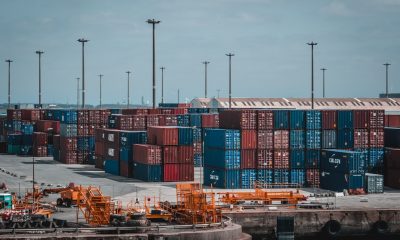Business and Economy
A resilient workforce is Priority 1

Businesses must have access to a workforce willing to step into uncertainty with them, adapting to new realities, building new product lines, and finding new ways to connect with customers. The skills for that transformation are a critical ingredient to recovery. (Pexels Photo)
As governments across Canada plan for a post-pandemic reset and recovery, ensuring businesses have workers with the skills to help them transform and innovate should be a high priority. A resilient labour market is the answer to two important challenges ahead: It stands to reconnect workers with paid employment and diminishes reliance on government supports.
Businesses must have access to a workforce willing to step into uncertainty with them, adapting to new realities, building new product lines, and finding new ways to connect with customers. The skills for that transformation are a critical ingredient to recovery.
But we also need data.
For most of the last decade, Canadian policymakers have been talking about the need for good labour-market information. The better the information, the more informed the decisions made by individuals, businesses and governments. Short a crystal ball, most labour-market information relies on a combination of yesterday’s data and educated guesswork.
That’s no longer good enough.
New ways of collecting and disseminating data about skills in demand are essential. Now is the time to collect these insights from employers directly, organizing information based on local labour-market realities in real time. This is the only reliable way to give Canadians direction as they seek opportunities in an uncertain job market.
We also need education models that are built on real-work scenarios, geared toward mid-career changes and lifelong learning.
The speed of change was a reality well before COVID-19. For the last decade, new workforce entrants have increasingly understood the likelihood of disruption and transformation throughout their careers. Today, one of the markers of a high-quality post-secondary education is the extent to which it prepares learners for that disruption, creating opportunities to build skills such as resiliency and change management.
Yet, many Canadians continue to believe education finishes with a degree, diploma or certificate. When disruption occurs on a grand scale — as it has with COVID-19 — we are confronted by a sizeable mid-career workforce without a cultural foundation for, or clear pathways to, lifelong learning. The challenge becomes to connect a displaced workforce to short-cycle programs designed to supplement their existing skills and experience, returning them to full employment as quickly as possible.
Here, investments need not focus on the creation of new programs. For example, polytechnic institutions already offer nearly 17,000 continuing education programs closely aligned to employer needs.
However, effective navigation is critical. Timely insights into necessary competencies must be provided to those seeking employment, with clear signposts to the programs and courses best suited to efficiently address gaps. Employers need both awareness of and connections to these talent pipelines. None of the players — employers, educators, or governments — can address this challenge without the active collaboration of the others.
There are some incredibly effective examples of this kind of collaboration across this country. These need to be scaled up in a meaningful way.
Innovation-enabling applied research — bringing an institution’s equipment, space and expertise to bear on challenges and ideas posed by business partners — is one of them. By engaging students, institutions provide hands-on opportunities for learners to work alongside employers. This ensures graduates enter the labour market with strong problem-solving skills, employer connections, and relevant experience. Employers overcome productivity challenges, benefit from business-specific R&D, and connect with an innovation-ready talent pipeline.
The application of a similar model is required to support lifelong learning and workforce resilience. Truly effective up-skilling occurs in the context of real-world employment, reflecting actual workforce needs and career aspirations. Canadian workers will undoubtedly derive more benefit from continuing education programs that are connected with more secure employment, better pay, and opportunities for promotion.
To make it work, employers must have opportunities to identify skills shortages and requirements linked to tangible job opportunities that offer some certainty to Canadians. Educators must offer career-relevant training that builds employer networks and concentrates on filling gaps between workplace needs and prior experience. The role of government is to support and incentivize these activities, while encouraging learners to engage.
Building a culture of adaptability and resilience is an absolute necessity to post-pandemic recovery. No single group has the ability on its own to address this challenge at the scale necessary, but there is no question that it’s Priority number 1.
Sarah Watts-Rynard is CEO of Polytechnics Canada. Leah Nord is senior director, Workforce Strategies & Inclusive Growth at the Canadian Chamber of Commerce.





















